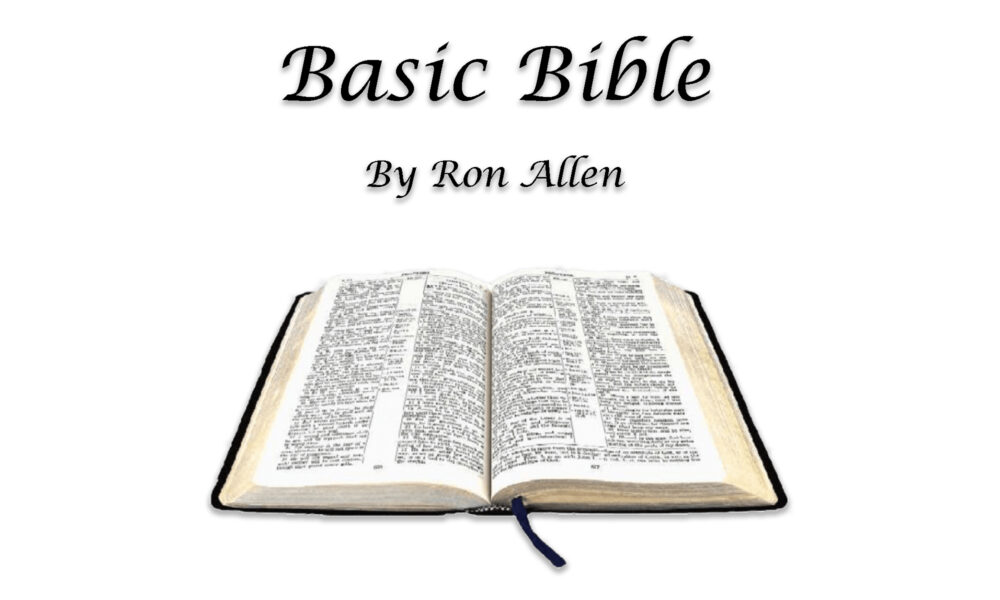Luke 6:1-11
Do not cross the street without looking both ways. There is a reason that mothers and fathers give this instruction. They do not want their child to put him or herself in harm’s way. A child can religiously obey this instruction and still perish. Looking both ways and then stepping into the path of a speeding vehicle will not save anyone. The consequence of failing to consider the intent of instruction can be fatal.
God, in His commandment given to Moses, stated that no work was to be performed upon the sabbath (Ex. 20:10). God had a reason for giving this instruction. God gave this instruction because He wants men to be mindful that in six days He created the heaven and the earth and that He rested upon the seventh day. God did not give men a mindless act to perform. God told man to recognize His act of creation by resting on the seventh day as He rested on the seventh day. God would have all men know Him.
In the text before us, the Pharisees took issue with the fact that the disciples plucked ripe kernels of grain from stalks growing in the field and proceeded to eat the kernels. The issue with the Pharisees was the fact that this took place upon on the sabbath day. They asked: “Why do ye that which is not lawful to do on the sabbath days?”
Eating the kernels, in itself, was not unlawful. The Pharisees considered it unlawful because physical effort was involved in separating the husks from the kernels. Silly? Yes, there are numerous comical scenarios which one can envision. Mashed potatoes could be eaten on the sabbath only if mashed the day before.
Jesus did not directly challenge the Pharisees’ interpretation of work. Instead, He directed their attention to an act performed by David which involved an unquestionable disregard of the law of Moses (See I Sam. 21:1-6). Through His question, Jesus required them to examine their traditions in the light of the scriptures. They could not condemn the actions of the disciples without bringing a similar condemnation upon David.
Jesus then declared to them that “the Son of Man is Lord also of the sabbath.”
Jesus used the term, the Son of Man, to refer to Himself. The literal and spiritual meanings of the term are far different. All who are born of woman have a claim to this title from a literal perspective because all are members of the human race. The spiritual meaning is revealed to men through the Holy Spirit (see Matt. 16:16-17). The Holy Spirit declares the Son of Man to be the Christ, the Son of the living God. The Son of Man is God manifest in the flesh. There is one and only one who qualifies spiritually as the Son of Man.
Jesus declared Himself to be the Lord of the sabbath. While it is not incorrect to view the term Lord of the sabbath as a statement of Christ’s authority over the sabbath, one performs a disservice if one does not reflect upon Jesus as the literal Lord of the sabbath. The literal Lord of the sabbath is the Creator who made all things that were made in six days and rested upon the seventh. The literal Lord of the sabbath is the God who is to be honored through the act of sabbath keeping. Note that Jesus said: “the Son of man is Lord also of the sabbath” (v. 5). The Lord of the sabbath is both God the Father and God the Son.
Jesus’ words did not sit well with the scribes and Pharisees. Their view of keeping the sabbath and Jesus’ teaching had collided head-on. They were intent upon destroying Him (v. 7).
Jesus, knowing their thoughts, did not turn from the true intent of the commandment given to Moses. Jesus used the opportunity to bring glory to both God the Father and God the Son.
On the sabbath day, He instructed a man with a withered hand to stand in the midst of the assembly. With every eye focused upon the man, Jesus asked if it were lawful to do good or to do evil on the sabbath, or, lawful to save life or to destroy life. Jesus, then, answered His own question by commanding the man with the withered hand to stretch forth his hand. The man did and his hand was made whole.
All who witnessed the happening would agree that the restoration was good, but not all believed that the restoration was lawful. The scribes and the Pharisees were enraged at what Jesus had done. Through His act of healing upon the sabbath, He exposed the god [not God] which the scribes and Pharisees honored. Their god was of their own construction; it was a god of mindlessness who is honored by mindless obedience to the traditions of men. It was a god who was honored by ignoring the needs of mankind. It was not the great I AM who spoke to Moses on Sinai. Mindlessly keeping the law does not fulfill the law. To satisfy the law, one must keep the intent of the law.
God the Son honored God the Father by doing good upon the sabbath day. Honor is found in adhering to the intent of the law. Let us be obedient to our calling. Let us keep both the commandment to love one another and the commandment to declare His love to all who have the ears to hear such that they might receive the free gift of life eternal in the presence of Him who is love.



